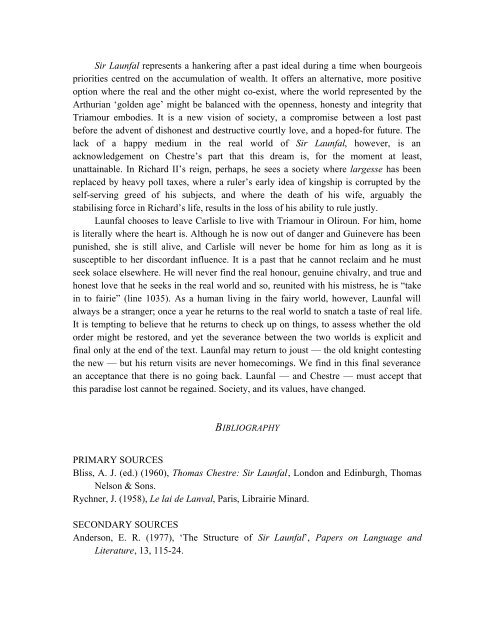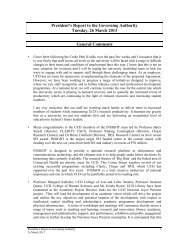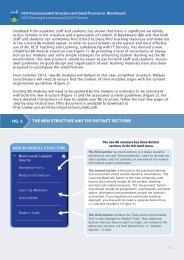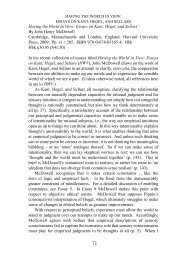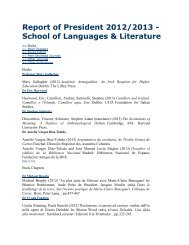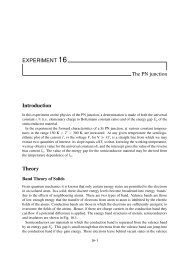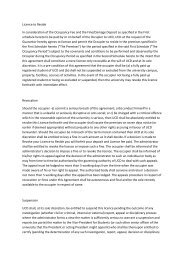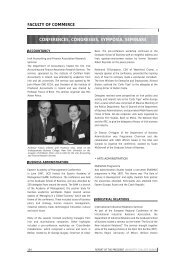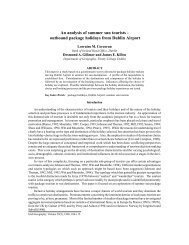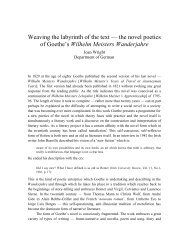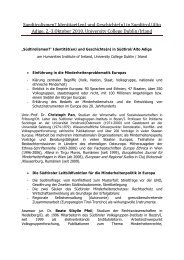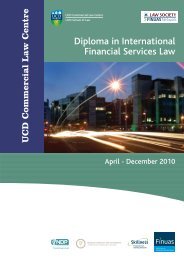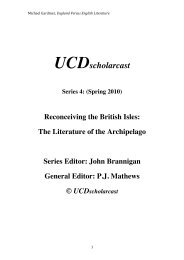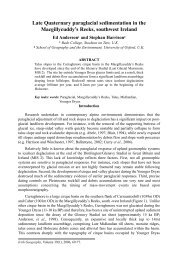Social Disorder and Discontent in Thomas Chestre's Sir Launfal
Social Disorder and Discontent in Thomas Chestre's Sir Launfal
Social Disorder and Discontent in Thomas Chestre's Sir Launfal
Create successful ePaper yourself
Turn your PDF publications into a flip-book with our unique Google optimized e-Paper software.
<strong>Sir</strong> <strong>Launfal</strong> represents a hanker<strong>in</strong>g after a past ideal dur<strong>in</strong>g a time when bourgeois<br />
priorities centred on the accumulation of wealth. It offers an alternative, more positive<br />
option where the real <strong>and</strong> the other might co-exist, where the world represented by the<br />
Arthurian ‘golden age’ might be balanced with the openness, honesty <strong>and</strong> <strong>in</strong>tegrity that<br />
Triamour embodies. It is a new vision of society, a compromise between a lost past<br />
before the advent of dishonest <strong>and</strong> destructive courtly love, <strong>and</strong> a hoped-for future. The<br />
lack of a happy medium <strong>in</strong> the real world of <strong>Sir</strong> <strong>Launfal</strong>, however, is an<br />
acknowledgement on Chestre’s part that this dream is, for the moment at least,<br />
unatta<strong>in</strong>able. In Richard II’s reign, perhaps, he sees a society where largesse has been<br />
replaced by heavy poll taxes, where a ruler’s early idea of k<strong>in</strong>gship is corrupted by the<br />
self-serv<strong>in</strong>g greed of his subjects, <strong>and</strong> where the death of his wife, arguably the<br />
stabilis<strong>in</strong>g force <strong>in</strong> Richard’s life, results <strong>in</strong> the loss of his ability to rule justly.<br />
<strong>Launfal</strong> chooses to leave Carlisle to live with Triamour <strong>in</strong> Oliroun. For him, home<br />
is literally where the heart is. Although he is now out of danger <strong>and</strong> Gu<strong>in</strong>evere has been<br />
punished, she is still alive, <strong>and</strong> Carlisle will never be home for him as long as it is<br />
susceptible to her discordant <strong>in</strong>fluence. It is a past that he cannot reclaim <strong>and</strong> he must<br />
seek solace elsewhere. He will never f<strong>in</strong>d the real honour, genu<strong>in</strong>e chivalry, <strong>and</strong> true <strong>and</strong><br />
honest love that he seeks <strong>in</strong> the real world <strong>and</strong> so, reunited with his mistress, he is “take<br />
<strong>in</strong> to fairie” (l<strong>in</strong>e 1035). As a human liv<strong>in</strong>g <strong>in</strong> the fairy world, however, <strong>Launfal</strong> will<br />
always be a stranger; once a year he returns to the real world to snatch a taste of real life.<br />
It is tempt<strong>in</strong>g to believe that he returns to check up on th<strong>in</strong>gs, to assess whether the old<br />
order might be restored, <strong>and</strong> yet the severance between the two worlds is explicit <strong>and</strong><br />
f<strong>in</strong>al only at the end of the text. <strong>Launfal</strong> may return to joust — the old knight contest<strong>in</strong>g<br />
the new — but his return visits are never homecom<strong>in</strong>gs. We f<strong>in</strong>d <strong>in</strong> this f<strong>in</strong>al severance<br />
an acceptance that there is no go<strong>in</strong>g back. <strong>Launfal</strong> — <strong>and</strong> Chestre — must accept that<br />
this paradise lost cannot be rega<strong>in</strong>ed. Society, <strong>and</strong> its values, have changed.<br />
BIBLIOGRAPHY<br />
PRIMARY SOURCES<br />
Bliss, A. J. (ed.) (1960), <strong>Thomas</strong> Chestre: <strong>Sir</strong> <strong>Launfal</strong>, London <strong>and</strong> Ed<strong>in</strong>burgh, <strong>Thomas</strong><br />
Nelson & Sons.<br />
Rychner, J. (1958), Le lai de Lanval, Paris, Librairie M<strong>in</strong>ard.<br />
SECONDARY SOURCES<br />
Anderson, E. R. (1977), ‘The Structure of <strong>Sir</strong> <strong>Launfal</strong>’, Papers on Language <strong>and</strong><br />
Literature, 13, 115-24.


